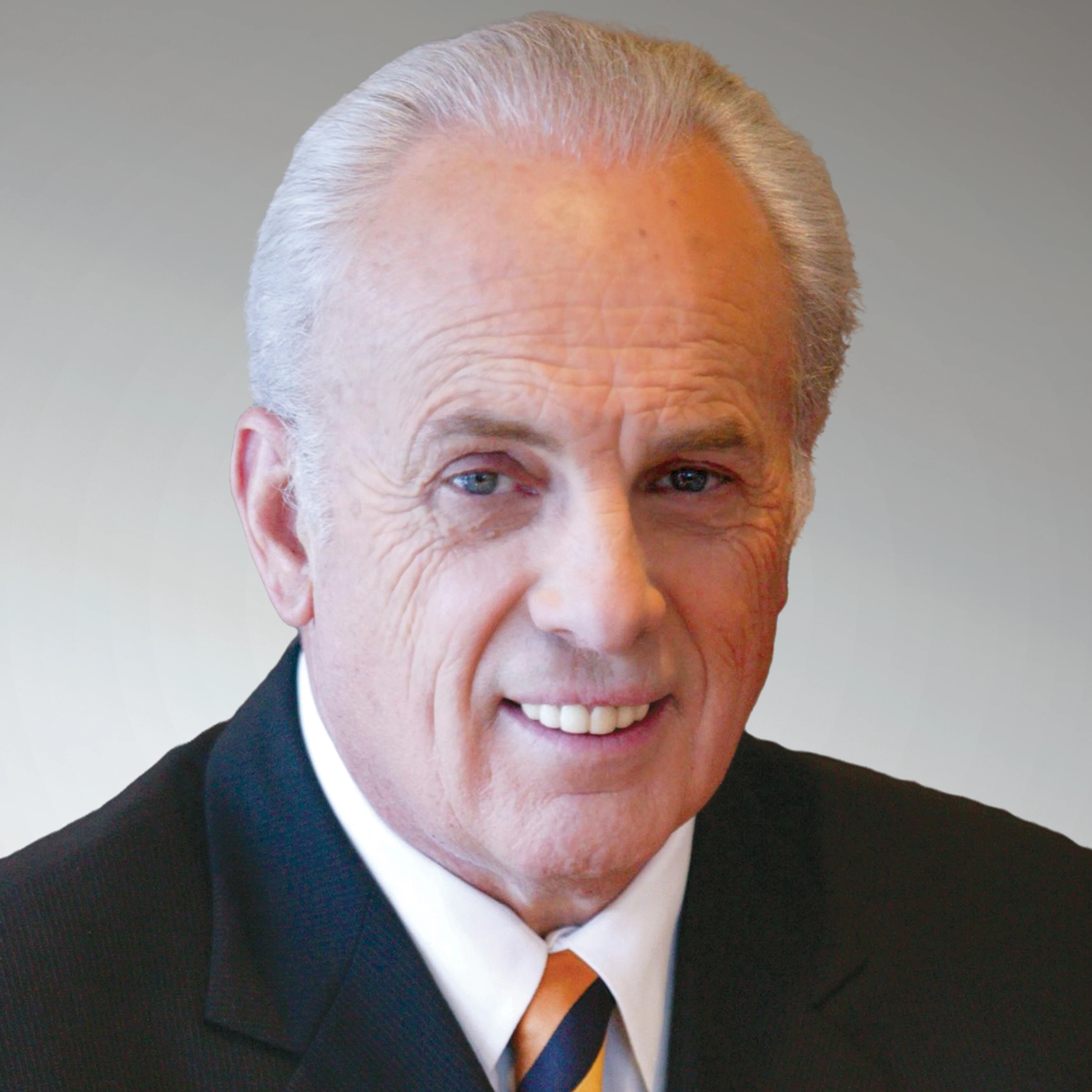John MacArthur and Hay’s The New Testament Order for Church and Missionary

For season two of Open Book, special guest John MacArthur joins Stephen Nichols to discuss the books that have had the greatest impact on his life and ministry. On this first episode, they discuss a book like a jigsaw puzzle and a church with 900 ministers.
STEPHEN NICHOLS: On this episode of Open Book we have a very special guest, and it's really my pleasure to talk with you, Dr. John MacArthur. Welcome to Open Book.
JOHN MACARTHUR: Well, thank you, Steve. It's a pleasure to be with you, talk with you, and fellowship with you. Hopefully we can say some things that are going to help.
NICHOLS: Let's hope, and I'm pretty sure we will because we're talking about something you know a lot about: books. You've written quite a few.
MACARTHUR: Yes. I have written too many books.
NICHOLS: We're here in your office at Grace Community Church. I think not too far directly beneath us is the bookstore for the church.
MACARTHUR: Correct. It's right below.
NICHOLS: It is right below your office?
MACARTHUR: Right.
NICHOLS: There are quite a few of just your books there.
MACARTHUR: That's embarrassing, Steve. We do have a library across the patio.
NICHOLS: Yes, right.
MACARTHUR: A seminary library that has everybody else's books.
NICHOLS: You have other books in the church bookstore too.
MACARTHUR: Yes, and I actually don't really have my study library here in my study. I have my study library at home, which are the five thousand books that I really work with. Then I have a few books here, and I have another set of books at the Master's University, and I have a little bit larger library at Grace to You. It's kind of spread around, but the working library is at home.
NICHOLS: Well, we're going to be talking about books that influenced you, and this is the first one you pulled. My hunch is this is probably going to be unknown to most people, so I'm just going to read the title, and then I'll turn it right over to you. It is The New Testament Order for Church and Missionary.
MACARTHUR: That's a grabber, isn't it?
NICHOLS: It is by Alexander Rattray Hay.
MACARTHUR: If you had that middle name, you wouldn't need to use it.
NICHOLS: I saw it said "Rattray," but I wasn't going to comment.
MACARTHUR: This author is a Scottish guy whose father started a missionary organization called the New Testament Missionary Union down in South America. They came out of a Plymouth Brethren background, and they were just relentlessly Biblical. This book, I think, was written in the 1940s, so it's getting close to one hundred years old. The reason it made a big difference in my life is really a providence of God. I can not honestly say that my dad or my granddad, who both were pastors, ever thought deeply about ecclesiology. In fact, they didn't talk a lot about theology as such, but certainly, ecclesiology was not an issue.
I was influenced by a very kind of uncritical congregational rule environment, and I knew it was bad, because I watched my dad try to deal with people who had no business making decisions for the kingdom and for the church, and I knew I didn't want that. I had some exposure to the Methodists when I was in a college that was originally Methodist for a while. I had exposure in my seminary days to the Presbyterian form of government, and it all sort of canceled everything out, and I was really just on my knees before the Lord saying, "I have to figure this out. I'm going to be a pastor, I've got to figure out what a church is supposed to be."
I was rummaging through an old bookstore, and I found this thing called The New Testament Order for Church and Missionary, and and asked, "How much is that?" It was like seventy-five cents. I grabbed it, and as I began to read it, I realized that it was printed with all the sections out of order. Page three hundred was thirty-five pages in.
NICHOLS: Oh, no.
MACARTHUR: Page one hundred was behind page six hundred.
NICHOLS: It's like a jigsaw puzzle.
MACARTHUR: It was a mess. I had to figure out how to read it, but it absolutely revolutionized my understanding of the church.
NICHOLS: I was thumbing through it a little bit here myself. I can't remember what page this was— in order or out of order— but I noticed you have margin notes a couple places. You have underlining, and at one place you say, "key." The text is about the pastoral call and the confirmation of the call, "Thus his call was related to the ministry of the church. He was a minister of the church, and his work was a part of the church's work. He was not an isolated or independent worker, but a member of the body, performing that part of the body's work, to which he was appointed by God."
MACARTHUR: Simple, but so true and so absent today. Churches have become islands run by independent leaders that have no connection to any higher authority, any eldership, or any accountability group. You know, denominations had a role to play— a profoundly important role to play— but they committed a kind of theological suicide and they just disappeared, and it's always a battle to hold onto them even today, even with good ones.
NICHOLS: Yes.
MACARTHUR: We've gotten into an independent kind of climate in the church where every church is an absolutely isolated entity unto itself, and it's like being king of the hill. All you have to do is ascend to leadership, and you're in command of everything. There's a terrible, terrible lack of understanding of the role of the pastor in the church, and the level of accountability he should have, and how he should answer to godly men. That was part of what I discovered in this book along with the whole concept of elders, what church leadership really was, what the church really was, what the ordinances of the church really were, what the body of Christ was.
When I came to Grace Church, this book was saturating my mind, and I began to preach early on about the role of the pastor, the role of elders, the role of the congregation. I can't tell you how many sermons I did— twenty, thirty, forty sermons— on the church as the body of Christ. I went through all the gifts, and all the “one anothers,” and I was drawing on this book.
NICHOLS: That's fascinating.
MACARTHUR: That was the first place I saw it all in one place, and it's not that everything in there you would necessarily want to embrace, but for the most part, it is looking at the church through one single lens, and that's the lens of the New Testament.
NICHOLS: Yes. You were landing on an ecclesiology. You were being very intentional about it.
MACARTHUR: Oh, it was. It was the New Testament ecclesiology. It was exactly what the title said it was. It was the New Testament order for the church.
NICHOLS: Here's another passage where you say, "key." It says, "A clear picture is given of the life and ministry of the new church. All were filled with the Spirit and were exercising gifts of the Spirit. All were preaching the Gospel. The unity of the Spirit and the love of Christ were manifested among them." Is this what was fueling you when you started back in 1969 here at Grace Community Church?
MACARTHUR: Yes, and I'll tell you how evident it became. The first article ever written on our church was written by a guy named Lowell Saunders who was a writer for Moody Monthly Magazine, a magazine long since dead, but it was vital in those days.
NICHOLS: It was.
MACARTHUR: He showed up here and he wanted to observe our church. It was like two years in or three at the most, and he wrote the first article ever written on Grace Church, and this was the title of the article: “The Church With 900 Ministers.” That's what he saw. Nobody told him that.
NICHOLS: That's great.
MacArthur: That was a result of me seeing exactly what you read, that everybody in the body of Christ serves, and everybody has a gift.
NICHOLS: Everyone is a minister.
MACARTHUR: Everybody preaches the gospel. Everybody loves one another. He saw a church, he said, that had nine hundred people and it had nine hundred ministers. That was the foundation for all that this church was and hopefully will continue to be.
NICHOLS: Well, that's great. I think we're off to a great start here with this first book: The New Testament Order for Church and Missionary, by a Scotsman with a Brethren background.
MACARTHUR: I might just say, too, that I checked with Amazon, and you can find some reprinted copies of it. I don't know whether they print them up as you order them, or whether they have them in stock, but it's an incredibly simple understanding of the church from the New Testament perspective. I want to add one other note. It's not Pollyanna. It's not sentimentalism. It's not, "Let's all be like the New Testament church," as if there was something about that church that has to be recaptured. What that church did was follow the instructions of the Apostles, and that's what's laid out in this book.
NICHOLS: The teachings of the Apostles.
MACARTHUR: Right.
NICHOLS: Well, thank you. I really enjoyed our time.
MACARTHUR: Thank you.
Transcript lightly edited for readability.
Recent Episodes
Augustus Nicodemus Lopes on Renewing Your Mind
June 27, 2024|Theologians
Augustus Nicodemus Lopes on Pearcey and Thaxton’s The Soul of Science
June 20, 2024|Apologetics
Augustus Nicodemus Lopes on Ridderbos’ Paul: An Outline of His Theology
June 13, 2024|Biblical Theology
Augustus Nicodemus Lopes on Lloyd-Jones’ Preachers and Preaching
June 6, 2024|Christian Classics
Augustus Nicodemus Lopes on Spurgeon’s Lectures to My Students
May 30, 2024|Christian Classics
Augustus Nicodemus Lopes on Packer’s Evangelism and the Sovereignty of God
May 23, 2024|Christian Classics

